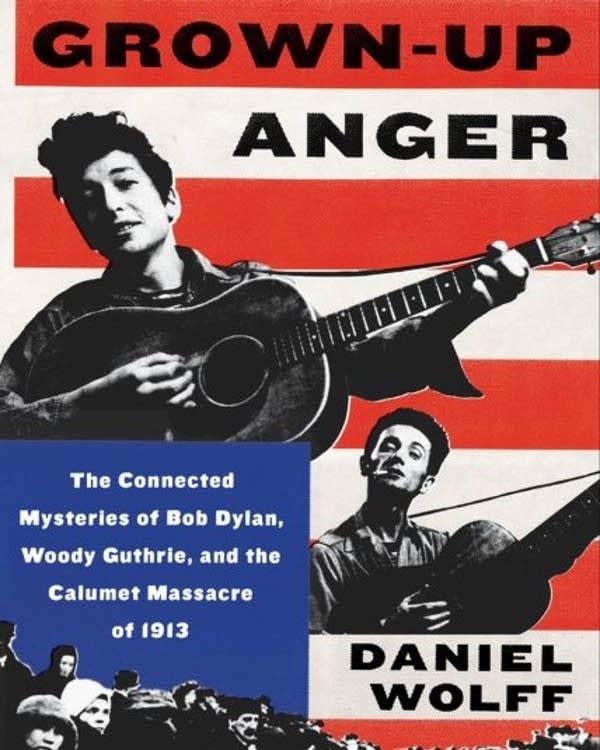Bob Dylan, Woody Guthrie and the history of protest
Go Deeper.
Create an account or log in to save stories.
Like this?
Thanks for liking this story! We have added it to a list of your favorite stories.

Every week, The Thread checks in with booksellers around the country about their favorite books of the moment. This week, we spoke with Ruth Hulbert from Fireside Books in Palmer, Ala.
You know that feeling where you follow a thread and find yourself down the rabbit hole of a great book?
That's what happened to bookseller Ruth Hulbert.
Years ago, she heard a bar full of people in Seattle break out into song to Woody Guthrie's "Roll on, Columbia." That sparked an interest in Guthrie, and that eventually led her to this book: "Grown-Up Anger: The Connected Mysteries of Bob Dylan, Woody Guthrie, and the Calumet Massacre of 1913" by Daniel Wolff.
Turn Up Your Support
MPR News helps you turn down the noise and build shared understanding. Turn up your support for this public resource and keep trusted journalism accessible to all.
"More than a history of music, this is actually a history of the United States, and of protest in the early twentieth century," Hulbert said.
"It's a story of three generations of protests, and it's linked together in a really interesting way. I think part of what makes this such a gripping read is that it's actually structured a lot like a piece of music.
"We get the story of Bob Dylan's musical education and political education and his music career in the turbulent 1960s." Dylan's experience is then "woven in together with Woody Guthrie's musical and political education in the 1930s, which was this restless and cataclysmic time in American history.
"There were all these interesting streams of American music coming down out of the hills and mixing in the cities and going out on the airwaves. So the 30s and the 60s have all these resonances between them, and underneath these melodies that are being told, there's this baseline of protest in the late nineteenth and early twentieth century — of line protests and labor strikes and all these people fighting and singing for a better world."
"I picked it up because I was interested in Woody Guthrie and it really just knocked my socks off with how good the writing was. There's nothing unnecessary or ornamental in it; it's very straightforward. I thought the writing of the book was very similar to how the author describes Woody Guthrie's singing style: It's very plain and direct and it's someone who wants to tell you the truth. That really comes through in the writing of this book."


